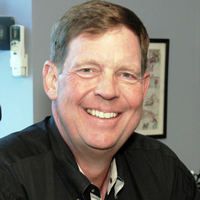Signs you need financial expertise and how to find it.
Everything starts with the sale. No sales, no need for people, no need for inventory, no need for accounting, no need for you. If you're in business or trying to achieve a higher level of business, your main focus is sales.
In fact, most company owners get wrapped up in sales and operations to the point that they are working in the business and not on the business. This is necessary in the beginning as you respond to growing demands. Wearing many hats is a hallmark of the entrepreneur. But all of those hats can be a downfall for company owners.
Knowing when to seek expert help with an often-overlooked-but-critical part of your company's life is the key to moving from "just surviving" to thriving. Financial analysis, interpretation of data trends, projections, timely reporting, and the ability to communicate these in user-friendly terms is best left to an educated, experienced professional: a chief financial officer or CFO.
Business is a game that is scored by profit and loss statements and balance sheets. I see too many people ignore balance sheets, the critical component of financial health. Most leaders of hvacr firms have come from the technical side of the business and have not focused on the financial side. This side seems to be necessary but time consuming, and so it is put on the back burner. But knowing where you've been, where you are, and where you can, cannot, should, or should not go is critical to your future. You simply cannot call the right plays if you don't know the score.
A CFO ensures that the score is being kept properly and can give critical advice for directional decisions based on the score.
As companies grow and responsibilities increase, leaders usually rely on seat-of-the-pants operations management. Everyone seems to know what to do. We don't need a paper trail — a phone call will do, or just stop me in the hallway and tell me about that next job. At some level of business, though, these informal methods fail, and things fall through the cracks. This is the time to tighten up procedures, policies, and processes, and to get a great CFO on board to help take the company to the next level of performance. Ideally, this person should be in place by now, but, as I stated earlier, entrepreneurial company owners and leaders tend to focus on operations and sales rather than financial score-keeping.
Two needs should trigger the hiring of a full-time CFO: addressing a weakness in the organization and/or freeing up the president to focus on strategic, long range planning.
While most companies have a bookkeeper, and some have a comptroller, a CFO brings even more skills to the team. CFOs typically provide more attention to analysis of business performance, insurance coverage and premium comparisons, cash management and cash flow, IRS reporting, and any audit and outside certified public accountant (CPA) interaction the company has. A CFO will have a much more detailed knowledge of the accounting functions, impacts of transactions on the general ledger, and GAAP (generally accepted accounting principles) adherence than a bookkeeper would.
Separation of accounting duties for minimizing fraud and embezzlement would be enacted by the CFO if not already existing.
A CFO will have more education and more experience than a bookkeeper or typical comptroller. Consequently, they will have higher (deservedly so) salary expectations. More than likely, this person will come from outside your current employee pool. It is not a lightweight position. This is a senior management leadership role.
In my discussions with other hvacr company owners and leaders, we all seem to agree that somewhere around the $4 million gross revenue mark is when we needed the competencies of a CFO. At Conditioned Air, this is also the level at which we found the need to make an investment in managerial personnel (because of the increased need for procedures, policies, and processes) and, consequently, we moved to a higher overhead percentage relative to the present income but with a capacity for future growth.
At the same activity level, we found we needed greater expertise with the accounting functions and to reduce our reliance on our outside accounting firm for routine help. (We still perform a certified audit each year, even though we are a privately held company, just for accuracy and increased assurances. This helps with bank financing and other credit we might use.)
Twice in my dozen years at Conditioned Air I have used my outside CPA firm to advertise and interview CFO candidates for me. They have a good feel for salary rates for what a CFO position is earning in the local market. They interview for technical proficiency just as you might for a field technician. I then interview for cultural fit into the company: personality, workability with the team, and a strong backbone. The last trait may sound strange, but I want somebody bold enough to challenge me on ideas that will have significant financial impact on the company.
I like the fact that my CFO is a devil's advocate for new directions and paths the company might take. He should be able to fearlessly raise red flags and point to analysis to show expected outcomes of decisions. If your CFO is really just a YES person, you might end up OUT of business. Find someone who pushes back just enough to make everyone think twice before committing to a decision but then jumps on board and is a full member of the team. It takes time to find just the right person.
It is impossible to speak of the role of a CFO without addressing the need for adequate policies and procedures (and processes that ensure adherence to policies and procedures) for service work, installation, and construction. Timely reporting of accurate raw data to the CFO will result in insightful analysis and valuable information on a consistent basis. Sloppy input and inaccurate data yields useless and dangerous information on the output side. CFO candidates should have the skills to create and implement operational reporting controls. Do not expect the candidate to be fully versed in the actual operations area or to be the sole enforcer of reporting controls. The entire management team is responsible for enforcement. It is driven from the top down.
I mentioned an activity level of $4 million dollars in gross revenue when we made a significant structural change to the management of Conditioned Air that included a CFO. Let me emphasize the distinction between activity and productivity in a business or an employee, for that matter. Productivity equals thrive while activity equals survive, maybe.
We found that we were very active, but inconsistent procedures and non-timely reporting failed to make us productive. We had hit our heads on the ceiling and could not progress unless we made good personnel investments. This was not an inexpensive decision, but we all saw it as necessary if we wanted to grow and maximize the profit potential of our company. We hired a CFO and were able to put action items in place to grow.
When we got to another hurdle level, $8 million in sales, we replaced that CFO with a more experienced, higher-level CFO who solidified our procedural reporting even more. This allowed us to evaluate and focus our efforts on our target markets (residential services and retrofit, custom construction, tract construction, and light commercial services and installation) and know with certainty our departmental returns on our invested time and efforts.
We could then further sharpen pricing and cost data for accurate projections and what-if scenarios. This information is critical in determining which markets to emphasize at different economic cycles.
We use this information to tell us key points such as:
- Are we capturing all our costs in the pricing of jobs or service?
- What is our true overhead and which accounts are on or off target to the budget?
- Do we want to work for this builder at the prices we can charge or are we losing money with them?
All this is made possible by having a dedicated professional in the form of a CFO providing the detail needed to make proper decisions. Driving at night requires headlights to see the road ahead. In business, the ability to see into the future requires good score-keeping by way of financial analysis and a good sense of the market. If you find yourself constantly guessing at how you really perform as a company, if the information isn't timely, or the accuracy is suspect, then you need to hire a professional.
By the way, when I say timely information, I mean having full financials, profit-and-loss statements, and the balance sheet no later than the 10th of each month for the preceding month. A month or two after the fact is not timely enough to make valid decisions. To accomplish this properly requires a full-time position — not part time and not on top of your already full schedule.
Financial analysis and a professional person leading that endeavor are two of the keys to a brighter future for your company. "If you don't know where you're going then any road will get you there" is a good way to describe what happens if you do not know, really know, where you are now and how to get you where you should be. Having a CFO by your side is a huge help in charting your course for success.
 Theo Etzel is the CEO of Naples, Fla.-based Conditioned Air. He is a seasoned business executive and passionate entrepreneur who believes in providing the highest level of customer care, services and products to his clients. For additional information, visit www.conditionedair.com.
Theo Etzel is the CEO of Naples, Fla.-based Conditioned Air. He is a seasoned business executive and passionate entrepreneur who believes in providing the highest level of customer care, services and products to his clients. For additional information, visit www.conditionedair.com.


 Theo Etzel is the CEO of Naples, Fla.-based Conditioned Air. He is a seasoned business executive and passionate entrepreneur who believes in providing the highest level of customer care, services and products to his clients. For additional information, visit
Theo Etzel is the CEO of Naples, Fla.-based Conditioned Air. He is a seasoned business executive and passionate entrepreneur who believes in providing the highest level of customer care, services and products to his clients. For additional information, visit 